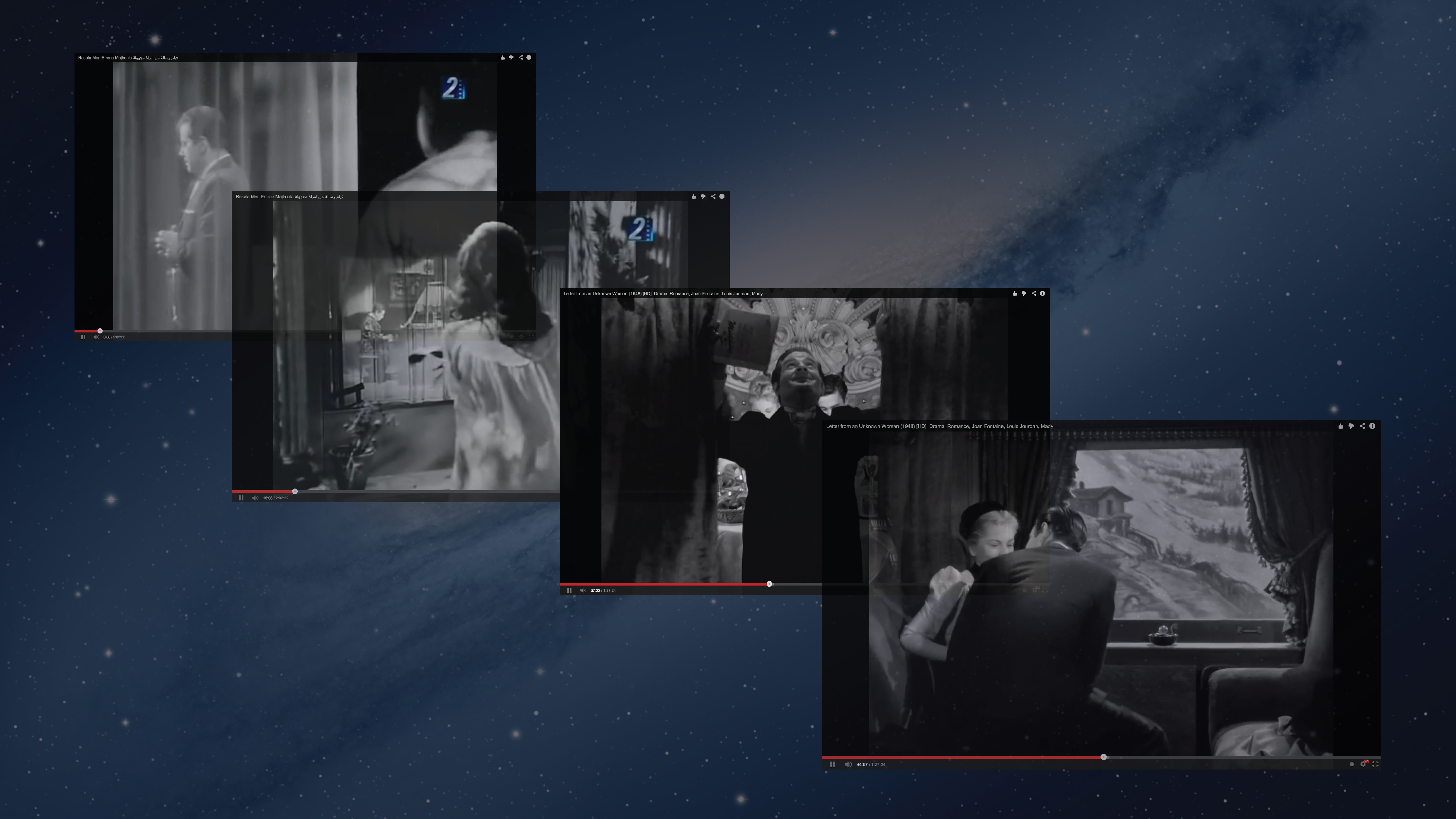(2011, 2013-)



• • •
‘“To you who never knew me”’
An Unknown Lover’s Discourse is a research art project first culminated as a Masters dissertation in Cultural Translation in 2015. The title is a marriage of two core texts central to the project, A Lover’s Discourse (1978) by French philosopher Roland Barthes and the 1922 novella Letter from an Unknown Woman by Austrian author Stefan Zweig about an unrequited love story set in turn of the century Vienna. Beginning with a recollection of an encounter in 2011 with a 1962 Egyptian film on Dubai satellite television, the project unfolded a couple of years later during my Masters programme through a series of experiments with receptive bilingual translation and my vague memory of this viewing. The film, Resala Men Emraa Majhoua (Letter from an Unknown Woman), is an adaptation Zweig’s novella and is a musical film starring Lebanese singer and oud player Farid Al Atrache and Loubna Abdel Aziz, directed by Salah Abu Seif. Set in 1950s Cairo, this film is one of a few adaptations of Zweig’s story at different points in time in different languages that include a Hollywood film in 1948, a French film in 2001 and a Chinese film in 2004. The initial research centred on my own encounters with these stories, ways of perceiving and interpreting these iterations across different electronic platforms, languages through the philosphical lens of Barthes’ A Lover’s Discourse with ethnomusicologist Ali Jihad Racy’s writing on the experience of tarab, or “enchantment” which describes improvisation in vocal and instrumental approaches in music, particularly influential in the musical history Arab region.
/ The story
Bracketed by short, italicised, omniscient prose, the central body of Zweig’s story comprises an unsigned letter by a woman to her lifelong unrequited lover, R., after her death. Written in a voice meant to echo a frantic, disquieted woman in love, the text lays to bare a depiction of female subjectivity. The unknown woman is effaced by her unbridled, masochistically silent fascination with the spirited life of a man of means, influence, genius and insatiable desire. Acting as a kind of externalised form of male introspection, the woman’s letter offers a vantage point for the man to see himself. Also, written by a male author, the story acts as a simulacrum of the female subject. This patriarchal redundancy places the man, both the author and beloved, as the creator and primary subject of a woman’s voice and consciousness. The woman is perpetually unknown, interchangeable with other lovers and only exists in the economy of men’s words.
• • •